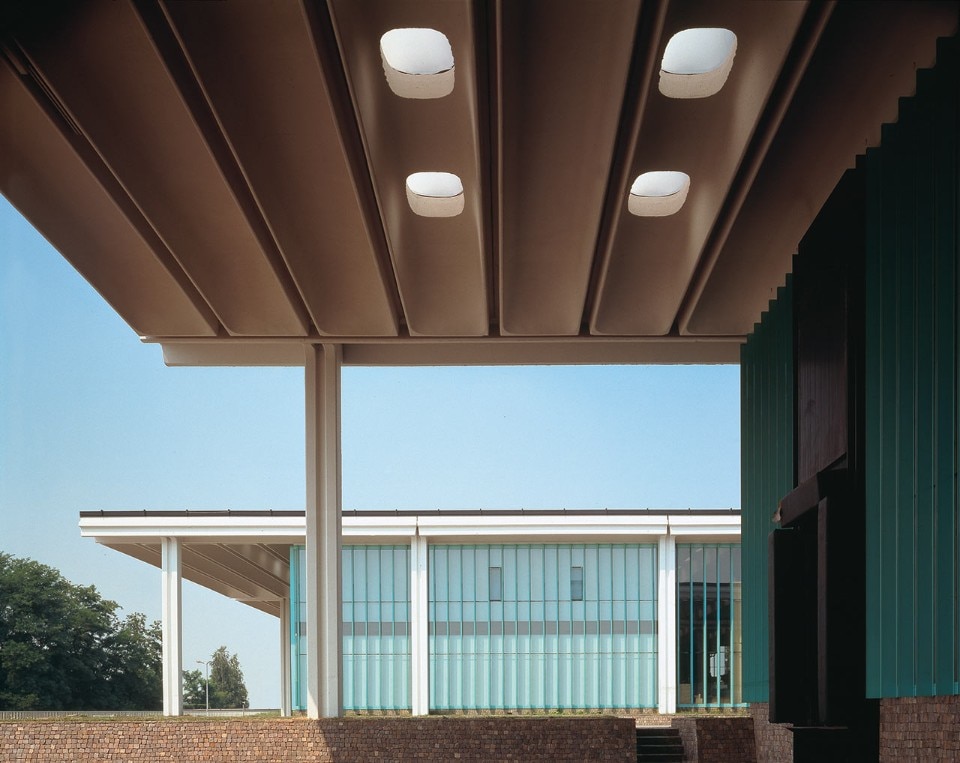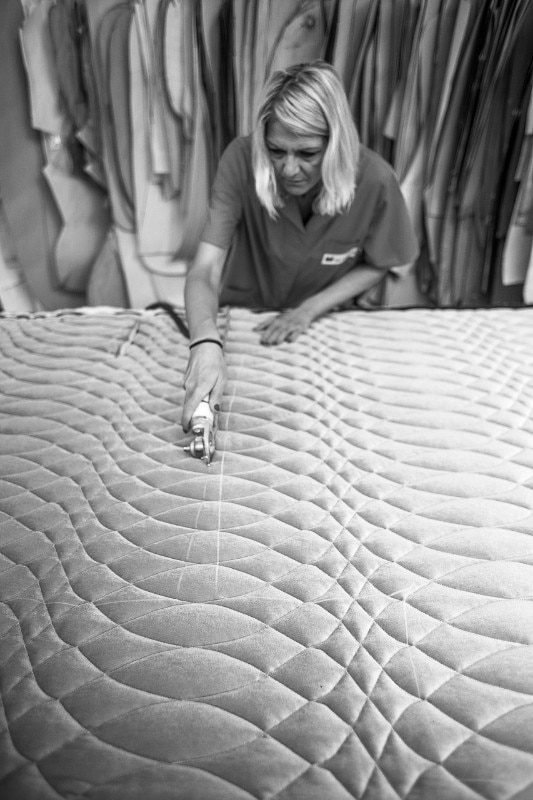The massive coronavirus lockdown has given rise to what is in fact the largest “work-from-home” experiment that's ever been done. We are finding unconventional ways to connect with colleagues, friends, school and family. Many of us have spent much of this time trying to get accustomed to the radical lifestyle change caused by the virus. But we are also starting to think about the end of this crisis and what the world will look like afterwards. So, this is a good time to imagine how the pandemic could change the way we deal with various aspects of life and work, the way we live, work and design. As Italians start preparing for the first reopenings, we've asked some entrepreneurs and managers how they reacted to this, and whether these changes will last even after the immediate relapses of the Covid-19 outbreak.
Designing during the pandemic
Carlo Molteni, managing director of UniFor, Turate (Lombardia, Italy)
“Molteni Group understood that the problem was serious because our Chinese subsidiaries had been on the alert since January. We were working on an important project, a tender that we'd won thanks to our Asia Pacific subsidiary, involving the entire group: the headquarters of HSBC in Hong Kong, a historic building built by Norman Foster twenty years ago, which will undergo a major extension and the construction of an additional floor with VIP suites for private meetings with bankers. In the middle of the construction works, we had to face this huge setback, called world pandemic: for this kind of projects we seek the help of our site project manager, who has been working with us for years and knows our products. But the situation in China was quite tense and, as they cancelled all flights at the end of January, it was impossible for this person so important for the project to fly to Hong Kong. We needed another person who could play that role, without ever having met us. We got in touch with an Italian architect living in Hong Kong and our staff led the Italian team virtually, by organizing meetings and site surveys via Zoom. This was a great test for the group, where once again the all-Italian ability to find creative solutions to difficulties was the key. We managed to do it by taking risks and we're making up for lost time pretty quickly”.
Acceleration of the digital change
Giulia Molteni, Head of Marketing and Communication of Molteni&Co, Giussano (Lombardia, Italy)
“Our company adopted an even stricter protocol than required, because we believe that people must be protected. We have helped our partners by sharing our guidelines to working safely. We reopened on 17 April thanks to an exemption letter from Fincantieri, restarting our production for military and then civilian shipyards. In Molteni, we now have 33% of our employees working in our plants, and the rest is still working from home; in Dada 45%; while the production departments are now 100% operational, with a large surface area that allows our workers to distance themselves from each other. This health emergency comes at the end of a fairly positive economic cycle. We're expecting to lose a lot of money, since our clients' confidence has dropped. But as Italians, we are capable of adapting very well and we are quick to seize new opportunities: on the one hand, there are the large groups that are asking for solutions to distance the operating stations and create areas of privacy and, on the other hand, the homeworking that has had a revival in Europe, where we were further behind the Anglo-Saxon markets, and the rediscovered centrality of the home that returns to be seen as a welcoming nest that protects us from what is outside.
This health emergency comes at the end of a fairly positive economic cycle. We're expecting to lose a lot of money, since our clients' confidence has dropped. But as Italians, we are capable of adapting very well and we are quick to seize new opportunities – Giulia Molteni
But perhaps the most interesting fact is the acceleration of the digital change that was in part already taking place: in three days, we were able to implement a remote order entry system; soon we will launch Molteni at Home, a digital consulting service, already available in the U.S. market, to give advice and remote assistance to end users and architects by sharing screens, sending free samples and sharing mood boards; in September we will present an e-commerce project in the United States; and we will present the 2020 collection in June with a virtual tour. Buying furniture takes time, but thanks to augmented reality and innovative technologies we will be able to rebuild a relationship of trust with the end customer”.

Andrea Margaritelli, brand manager of Listone Giordano, Torgiano (Umbria, Italy)
“We've resumed production on 15 April to supply the shipyards, and we have done so by taking the necessary precautions: this lockdown has raised the threshold of attention and people's sense of responsibility towards themselves and towards others. After all, the numbers have always been high in Italy during the course of the pandemic: it was like an earthquake in L'Aquila every day. The Arena, a place for meeting and discussion, is a visionary project created by Michele De Lucchi who, with just a few interventions, has transformed the space by focusing on values rather than on products, and paying close attention on human relationships. This experience was abruptly interrupted by the Covid-19 lockdown, but I am convinced it will soon find its original function. In response to this setback, a technology project that reduces the distance between people and maintains the human component: it is called "One", the digital magazine that allowed us to regain possession of some languages. I recognise people's willingness to relate to the company and I believe that the clients of today have a great desire to know what they're taking home with them, and how the products they use every day are made”.
Health is a unique, non-negotiable good
Patrizia Moroso, Art-director of Moroso, Cavalicco (Friuli-Venezia Giulia, Italy)
“We had a relative reopening on 28 April, because the shipyard chain, which today represents the 10% of our total production, was been authorized to resume. Although Friuli and the province of Udine had one of the lowest Covid death rates in Italy, we thought first of all about people's well-being, and decided to close down immediately and start working from home. Today, nothing is certain. The lockdown came one and a half months after the opening of the Salone del Mobile. We reacted by holding digital presentations for the press and architects, which will continue also in the second half of the year, although we are aware that the Salone's exceptionality is unrepeatable. We are working on a theme that I think will be crucial in the post-Covid scenario: we are experimenting with the use of innovative materials with low environmental impact both for the upholstery and for the padding of the seating systems. We have started to collaborate with Italian start-ups that were established just a year ago and are looking for valid alternatives to polyurethane and polyester. For us, this is a priority, and I am sure that our clients, even more so in the post-Covid era, will be much more aware. We can't change everything in one day, but if we start using 'good' materials more, their cost will soon be lower”.
A theme that I think will be crucial in the post-Covid scenario will be the use of innovative materials with low environmental impact – Patrizia Moroso
Gregg Buchbinder, CEO of Emeco, Hanover (Pennsylvania, US)
“We've stopped our production on March 20th and we are preparing to restart next week: we have very large spaces, everyone will wear a face mask and gloves, there will be hand sanitizing stations, we will be measuring fever at the entrance and we will continue to communicate with our suppliers through online meetings. The Emeco factory is in the East Coast, while where I live, in the West Coast, the incidence of cases is 10% compared to New York. Despite this, here in Los Angeles, the beaches are not officially practicable, restaurants and bars are closed, and we are not sure when everything will reopen. The new products that we were going to present this year at the Show will be left for next year. We've been attending the show for two decades and for us it's more than just launching new products: it's an opportunity to sit down with colleagues and friends and share ideas. We like Italian food and wine. And everything we do during the year is for the Salone. Now, we are more concerned with doing things the right way, slowing down rather than consuming more - which is part of the problem we have now. We will have to consume less or be more aware of what we consume. We are realizing that we have only one Planet and that we need to be united and work together. But above all, we believe it is important to be transparent and say exactly what our furniture is made of: the clients will want to know what they're taking home. For quite some time now we have chosen to use recycled materials to preserve the environment and we test our materials extensively because we want to be sure that our products can be used in any context, from schools to hospitals”.
We will have to consume less or be more aware of what we consume – Gregg Buchbinder

Working from home will be the new normal
Carlo Urbinati, President of Foscarini, Marcon (Veneto, Italy)
“We're part of a system. We rely on small suppliers, the ones who had to close down first. We had problems with goods that could not be delivered and had to be sent back because all the shops in Spain, France or Germany were closed. The researchers at John Hopkins University are studying those who reacted better: we as a country will have to deal with this situation for decades. There will be a natural selection: those who had strong values will resist. We are facing a period of great concreteness. There will be space for objects that have a function and that solve a problem. Today the house has found a new centrality and is winning over the office. However, we are currently suspended between "no more" and "not yet" and for this reason we have decided to postpone the launch of new products until autumn because people are not ready for new things right now. However, we have studied a different way to design our products and to tell them: our lamps will no longer be placed on a pedestal, in controlled atmospheres without people, but we will focus on people and their relationship with their environment. The outcome of this path can be seen in the new project Vite by Gianluca Vassallo”.
There will be a natural selection: those who had strong values will resist. We are facing a period of great concreteness – Carlo Urbinati

Waiting for Milan 2021
Alex Alorda, Vice-President of Kettal, Barcelona (Spain)
“Our company worked normally, as if nothing happened, with the exception of the fifteen days when the Spanish Government stopped all production. The truth is that in the first week people were nervous, but as the days went by and thanks to the implementation of various security measures, today we are working normally, and we feel safe - in fact nobody has been infected yet. We have several news that we have decided to present in Milan in 2021. Personally, I think that all the projects will be great, because companies will have more time to work on them, and I believe that the Salone del Mobile in Milan 2021 will be exceptional!”







